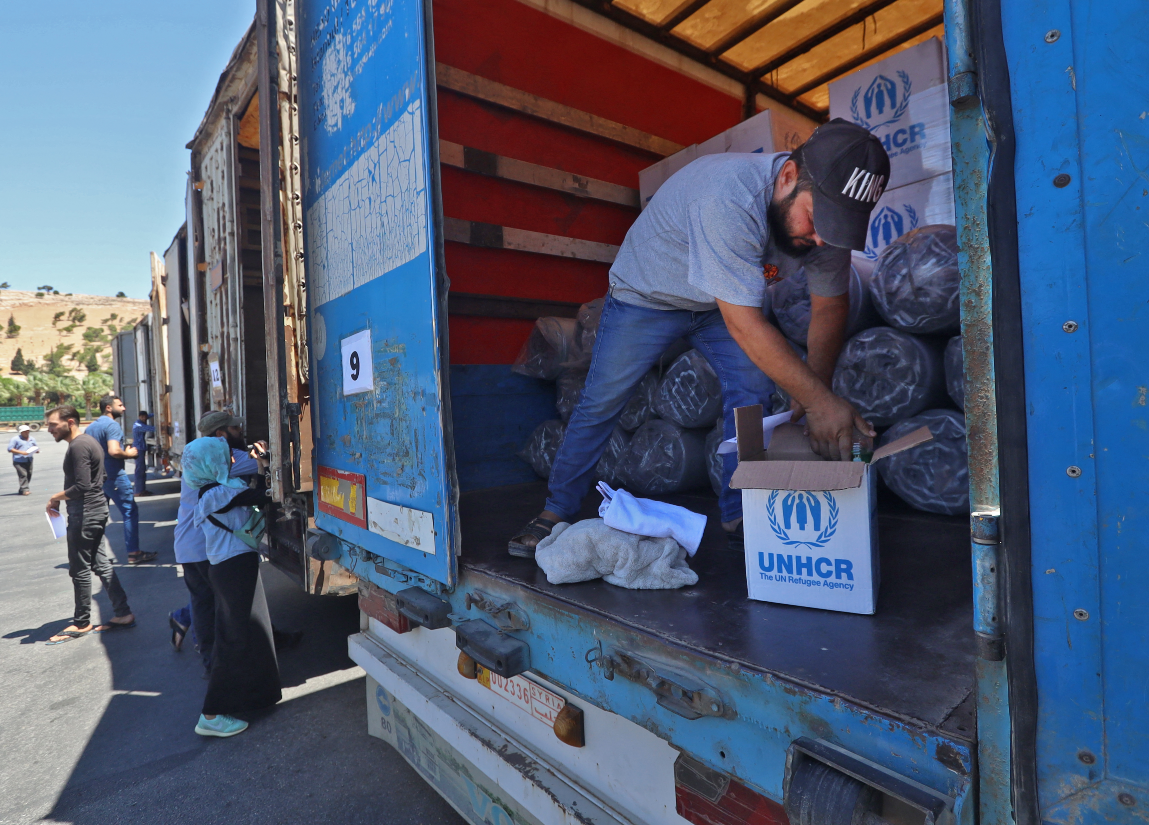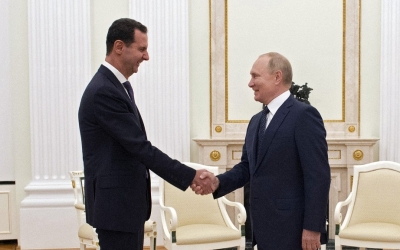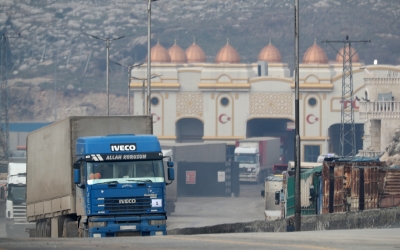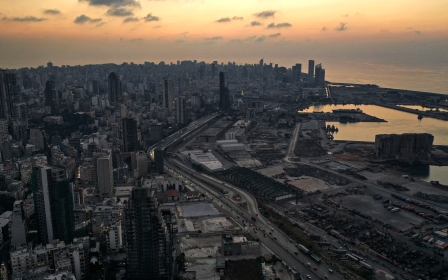Syrian government insiders reap millions from UN contracts, new report finds

A new report has found "systemic" corruption in humanitarian aid to Syria, with individuals accused of human rights abuses benefiting from procurement contracts with United Nations agencies.
Between 2019 and 2020, nearly 47 percent of UN procurement funding in Syria went to businesses tied to human rights abuses committed by the government of Bashar al-Assad, according to a report released on Tuesday by the Syrian Legal Development Programme (SLDP) and the Observatory of Political and Economic Networks (Open).
In addition, nearly 23 percent of the UN’s procurements - worth about $63m - were sourced from individuals sanctioned by the US, UK, and EU.
“The level of abuse is incredible, but it’s highly credible if you understand the situation in Syria,” Natasha Hall, a senior fellow at the Center for Strategic & International Studies (CSIS), said in a panel discussion on the report, hosted by the Middle East Institute.
According to its website, SLDP is a non-aligned NGO headquartered in London and works on utilising international law to respond to human rights issues triggered by the war in Syria. Open is an online data project launched primarily by Syrian and Arab youth.
New MEE newsletter: Jerusalem Dispatch
Sign up to get the latest insights and analysis on Israel-Palestine, alongside Turkey Unpacked and other MEE newsletters
Warlord wins million-dollar contracts
In one case, a company reportedly affiliated with Maher al-Assad, the Syrian president’s younger brother, obtained contracts worth about $2.3m from the World Health Organisation, World Food Programme, and the United Nations Development Programme between 2019 and 2020.
In what Karam Shaar from Open called one of the “most shocking” examples of human rights abusers profiting from UN contracts, a firm called Desert Falcon received over $1m in contracts from the United Nations Children's Fund (Unicef) and the United Nations Relief and Works Agency for Palestine Refugees (UNRWA).
“The problematic ones (suppliers) are the ones who have bigger contracts,” Shaar said.
Desert Falcon is co-owned by Fadi Saqr, leader of a pro-government militia known as the National Defence Forces. The group is widely believed to have committed the 2013 Tadamon massacre in which 41 people were killed.
Shaar stressed that the authors of the report were not “anti-UN”, but said “there are serious issues that need to be addressed”.
Hall, from CSIS, said the report's findings revealed that the “credibility and sanctity” of the international aid system were on the line.
“We need to get this right,” she said. “Other regimes are learning from the Assad playbook”
Front companies proliferate
In another case, the Rami Kabalan Group, a firm owned by an individual associated with the brother of sanctioned Syrian businessman Rami Makhlouf, obtained contracts worth $21.5m from UN agencies between 2019 and 2020.
'The level of abuse is incredible, but it’s highly credible if you understand the situation in Syria'
- Natasha Hall, CSIS
Rami Mahklouf, a cousin of Syrian President Bashar al-Assad, is on multiple US sanctions lists. He was placed under house arrest in 2020 as part of a shakedown by Syria's cash-strapped government of wealthy business figures.
“A major issue is with fronts and intermediaries,” Eyad Hamid, senior researcher at SLDP said. “Some names have become so exposed, they rely on other players on the ground to work on their behalf,” a common practice in money laundering.
The report was based on open-source information, as well as interviews with former staff from UN agencies in Syria and Syrian businesspeople.
Lack of transparency
The researchers said one trend they found was UN agencies' practice of engaging private suppliers in large contracts, which reduced competition and makes it more likely for businesses affiliated with the government to apply for the contract.
“When the product is readily available on the market and the contract is small..then there is a potential for genuine competition,” the report said.
The report also emphasised a lack of transparency in UN procurement processes. Between 2019 and 2020, over $75m worth of procurements were won by businesses where the name of the supplier is withheld for security or privacy reasons.
Syria topped the list of countries receiving UN-facilitated aid in 2020 with the highest share of such suppression.
The report comes amid other research pointing to the Assad government’s widespread manipulation of UN aid.
According to a report last year by the Washington-based Center for Strategic and International Studies, the Syrian government has siphoned millions of dollars in international aid by distorting the country's rate of currency exchange.
The authors found that Damascus kept 51 cents of every international aid dollar spent in Syria in 2020.
Last week, the Associated Press reported new allegations that the World Health Organisation’s top official in Syria mismanaged millions of dollars and provided Syrian government officials with gifts - including computers, gold coins, and cars.
Correspondence sent to the WHO director general complained about the agency's representative, Dr Akjemal Magtymova, hiring unqualified relatives of government officials, including some accused of “countless human rights violations”.
This article is available in French on Middle East Eye French edition.
Middle East Eye delivers independent and unrivalled coverage and analysis of the Middle East, North Africa and beyond. To learn more about republishing this content and the associated fees, please fill out this form. More about MEE can be found here.






